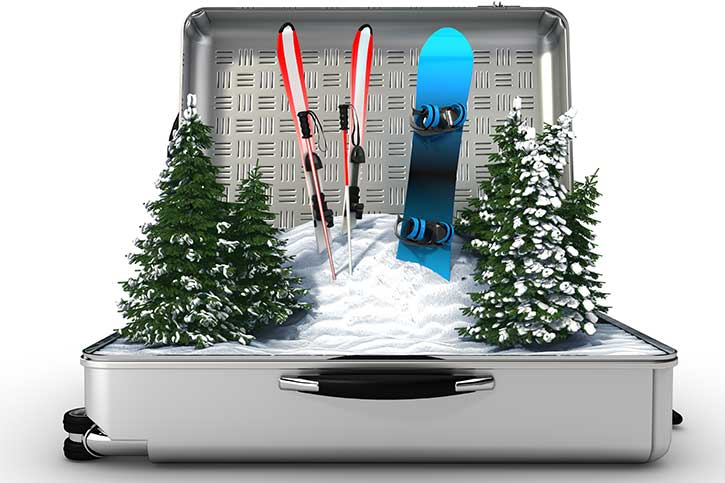
Whether the mode of transport is by air out of Chicago O’Hare International Airport (ORD), sea, or land, travelers receive all types of safety warnings prior to heading out. However, luggage may not immediately come to mind when one thinks of common causes for holiday travel injuries. It may also surprise you that the U.S. Consumer Product Safety Commission (CPSC) reported more than 85,000 people in 2017 received medical treatment for luggage-related injuries.
Five Tips to Protect Your Head, Shoulders, Knees & Back
Despite the potential dangers suitcases, totes, sports equipment bags, and backpacks may present – there are ways to help reduce your chances of a luggage-related injury this holiday season. Aside from watching out for tripping hazards caused by random luggage or straps laying around, the following tips may help prevent other holiday travel injuries.
- Bend at your knees. It’s not uncommon to find safety signs at workplaces encouraging workers to use the proper way to lift and carry heavy objects. It’s also uncommon for travelers to apply those same techniques when handling their own heavy pieces of luggage. The American Academy of Orthopaedic Surgeons (AAOS) suggests that when lifting heavy luggage stand alongside it, bend at the knees, and use leg muscles to help avoid back or neck pains or strains. Furthermore, the AAOS offers that it’s also good to shift shoulder bags from side to side to reduce the chance of overworking a shoulder.
- Pack light. We’ve all seen the magical folding guru’s roll and pack 7 days worth of clothes and shoes into one small suitcase. For those of us that have not mastered that technique, it’s best to pack a few things that can be layered. It’s also a good idea to look for fabrics that will wash and dry quickly. Another tip to lighten your load is to disperse your items among multiple smaller cases, totes, and backpacks. If you do end up with heavier bags, remember to bend at your knees when lifting.
- Slow your roll. Yes, the invention of the spoked wheel back in 2000 BC was ingenious. Then later when wheels were added to luggage, travelers further rejoiced. However, even though it is easier lug your personal items around – it’s not wise to rush it. Pulling heavy suitcases behind you can tweak your back, shoulders, and neck. Rushing while doing so can also result in more severe pain and suffering. Especially if a wheel breaks, your luggage gets caught in a floor crack, or you are thrown off balance and fall down. Additionally, you may end up harming a fellow traveler by creating a tripping hazard or dropping heavy luggage on them in your haste.
- Be cautious of overhead bins. Changes in luggage counts and fees equate to more people using the overhead bins on planes. That also increases the number of objects that may have shifted during a flight. Take precautions to reduce a piece of luggage falling on you by carefully opening a bin after landing. Or, offer to assist another passenger place luggage in the bin that you may be sitting directly under.
- Avoid the twist and shout. As previously stated, whenever lifting heavy luggage it’s important to bend your knees and use your leg muscle. It’s also important to have your toes pointed forward and your back straight. Twisting while lifting can result in you later shouting in pain from an unnecessary strain.
Chicago Travel Injury Lawyers are a Call Away
If you or a loved one suffered a personal injury while traveling this holiday season, contact the experienced legal team at Lerner and Rowe Injury Attorneys. With multiple locations across the state of Illinois and 24/7 support, you can get the help when and where you need it most!
Make one call to (844) 977-1900. Or, contact us with an online form or through our convenient LiveChat feature. The consultation is free and you pay no fee unless we win your case.



